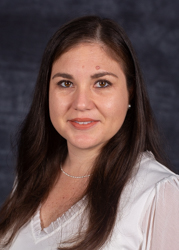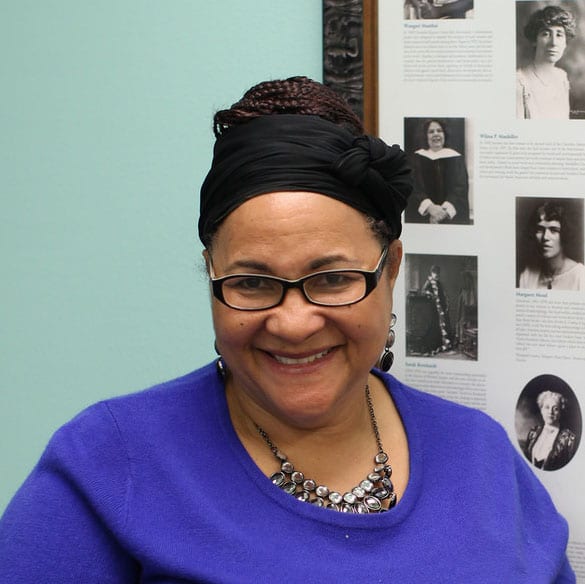Learn about our Educational Administration: Higher Education Administration Program
Attending any one of the informational webinars is strongly recommended to strengthen your application and materials to the Ph.D. program. During the webinar, you will have opportunities to interact with program faculty who will answer any questions you may have.
Webinar Series
- May 13, 2024: 12:00-1:00 PM
To attend the session:
Join Zoom Meeting
https://tamu.zoom.us/j/94350583560?pwd=RFlUVTJwTllSd2xva2hpT2tnbkhtdz09
Meeting ID: 943 5058 3560
Passcode: 025575
Program Overview
Our 67-hour doctoral program prepares students for leadership roles in higher education administration, teaching, and research through an emphasis in integrating theory and practice. The degree has several required courses as well as electives that are chosen based on the student’s support field in a related discipline, and must be approved by the committee chair.
About the Field
Higher education is a broad-based area of knowledge and study that examines the management and coordination of programs, policies, and processes pertaining to colleges and universities.
These programs, policies, and processes include issues associated with:
- Access
- Admission
- Assessment and curriculum
- Diversity
- Enrollment and equity
- Finance
- Governance and law
- Organizational behavior
- Policy and resource management
- Students and teaching
Career Paths in Higher Education
Career paths in higher education come in a wide variety, and are dependent on academic qualifications, as well as job responsibilities required within and across academia. For example, the career path to become a president (an institution’s chief executive officer or CEO) at a university like Texas A&M, designated as a R1: Doctoral Research University, is different for a baccalaureate college or a master’s college and university.
While it is possible to prepare for a career in higher education administration with a bachelor’s degree, most colleges and universities require an advanced degree. Higher education administrators typically hold a masters or doctorate degree with areas of specialization including:
- Business
- Finance
- Law
- Student Affairs
- Organizational behavior
- Policy
- Research methodology
- Teaching
A graduate degree in higher education can prepare you for a career in a postsecondary or professional setting, such as:
- Academic administration
- Administrative leadership
- College teaching
- Educational development
- Faculty in higher education (tenure and non-tenure track appointment)
- Industry
- Student Affairs
- Training and development
Vision and Mission
Our program has a specific focus on infusing an equity minded agenda that is reflected in the courses we teach, the research we conduct, and the service we provide at the local, state, and national levels. Specifically, we offer areas of emphasis including higher education administration, student affairs administration and a certificate in college teaching for aspiring postsecondary instructors. We excel at graduating scholar practitioners.
Vision
We strive to prepare students to be equity-minded leaders in higher education in Texas and beyond.
Mission
We prepare future faculty members, administrators, and scholar-practitioners with interests in working at community colleges, four-year institutions, and state, and national organizations.
Core Values
- Mentoring and Teaching: Challenging and supporting students through quality mentoring and teaching
- Knowledge Development: Developing critical consumers and producers of knowledge.
- Service: As a land grant institution, we embrace service to our diverse communities
Why choose Texas A&M?
We welcome prospective students who want to engage with a community of scholars devoted to advancing research, policies, and practice focused on pressing issues in higher education. We have faculty members, administrators, and graduate students committed to being leaders at the local, state, regional, and national levels.
Our program offers opportunities to:
- Work alongside faculty as research collaborators.
- Make a meaningful opportunity to contribute to national discourses in higher education and student affairs.
- Engage in a learning community.
- Serve or lead at the national level.
- Apply academic learning and teaching in professional practice.
- Individualize and tailor your educational experience based on personal goals.
Other program and university highlights:
- Faculty committed to student success
- Faculty with a breadth and depth of knowledge and experiences beyond teaching
- Graduate Fellowship from the Office of Graduate and Professional Studies
- Graduate student support and involvement (e.g., GRAB/SAAHE professional organization, Black graduate student association, Hispanic graduate student association, Graduate student senate?)
- Extensive academic support available through Texas A&M University (e.g. Writing Center, World Class Research Library)
Admissions
Admissions Deadline: December 1
To be admitted to a graduate program, you must apply to the EAHR department and Texas A&M University.
How to applyProgram Details
Degree: Doctorate (Ph.D.) in Educational Administration
Emphasis: Higher Education Administration
Degrees Offered: Doctor of Philosophy
Credit Hours: 67 hours (minimum of 96 hours without a Masters degree)
This doctoral program is designed for aspiring faculty, experienced staff members and organizational/institutional leaders at various stages in their careers. With compelling and diverse coursework, our program offers exceptional academic preparation for scholar-practitioners that reflects the guiding principles of Texas A&M and our department.
Our graduates are senior higher education administrators, faculty members, vice presidents, and Deans. Our faculty are leading scholars in several research areas, including:
- Student retention and financial aid,
- The preparation and retention of underrepresented groups such as males interested in attending a postsecondary institution,
- Faculty work-life issues,
- Diversity issues in higher education,
- College teaching, and
- Qualitative research.
For a better understanding of your total cost of attendance (COA), please visit our cost and tuition rates webpage (https://aggie.tamu.edu/billing-and-payments/cost-and-tuition-rates). This webpage will provide you with an opportunity to review estimated COA information for undergraduate, graduate and professional students, as well as other resources such as the tuition calculator and billing and fee explanations.
Degree Plan
As a student in our Ph.D. program, you will be enrolling in a variety of courses. Courses such as Educational Foundations of Higher Education and Policy Issues in Higher Education, for example, work in tandem to help you understand how colleges and universities function in the broader society. Other courses, including Administration of Higher Education provide an understanding of how universities function and prepare graduates for leadership roles.
- You will have a number of opportunities to enroll in elective courses of your choosing within the program and department.
- You will be required to take courses outside our department and to develop a secondary field of concentration.
- Your concentration courses do not have to be from the same field but fit together to prepare you for your professional career and dissertation research
- You will work with your faculty advisor to tailor a program of study, including your area of concentration, that will assist you in choosing courses that help develop and shape your research interest(s) and position you to succeed in higher education now and in the future.
Request Information
Higher Education Program FAQ
Can I focus on an area of specialization?
We encourage students to choose an area of specialization to further enhance their learning experience in our program.
Do I need a master's degree?
No.
Our students come from a variety of undergraduate and graduate disciplines, and can tailor their graduate program to their particular career goals. Students from inside and outside of higher education make for rich classroom discussions. If a student is admitted to this program without a master’s degree, they will need additional coursework beyond the traditional 73 credit hours.
How can I strengthen my application?
All prospective Ph.D. students are highly encouraged to meet with a program faculty member prior to applying to the program, to ask questions and ensure that it will help meet your goals. These meetings can also serve as opportunities for prospective students to find out what type of candidates the program is looking for.
Prospective students are encouraged to apply early, especially if they are wanting to be considered for awards, such as fellowships and assistantships.
Are GRE scores required?
No.
GRE scores are not required for admission to the Ph.D. program.
How soon can I apply?
Applications for the Ph.D. program are accepted August 1-December 1, for the following Fall semester.
It is recommended applicants submit all application materials in advance of the deadline to ensure a complete application when reviews begin.
How do I apply?
Completed Application
- A completed Texas A&M University GraduateCAS application.
- The name on your application must match your name as it appears in your passport.
- Application fee: A non-refundable $89 application fee for domestic applicants and $114 application fee for international applicants. The application fee may be paid by check, money order or approved credit card. Applicants who wish to pay by credit card may do so as part of the online application. If you are unable to pay the fee online, you may call the Graduate Admissions Office at 979-845-1060.
- Official transcripts and records: Submit official transcripts from all colleges or universities attended.
Note: You do not need to submit an official transcript from Texas A&M University. Learn more about submitting official transcripts.
How to Apply:
What types of funding are available to Ph.D. students?
Full-time PhD students are eligible to apply for Graduate Assistantships. These assistantships pay for nine hours of tuition, as well as a monthly stipend. These assistantships range from assisting with courses, teaching undergraduate courses, or assisting with research.
Full-time students are also eligible to be nominated by faculty for a fellowship. These fellowships are competitive, so prospective students are encouraged to have their admission applications submitted early. They are also encouraged to meet with faculty members in the program to discuss their interest in the program, as well as being considered for an award.
Students who are not full-time can contact the Student Financial Aid office for other funding opportunities available to graduate students.
What do I need to include in my Statement of Purpose?
Admissions committee members look mainly for fit between what the applicant wants from a graduate program, and what we offer.
In the personal statement, applicants are encouraged to clearly state and connect their background or current work, particularly their future career plans, to the degree they are seeking.
Because the doctorate is a research degree, applicants are invited to discuss potential research interests. These do not need to be well developed; however, if an applicant’s research interests relate to the work of a particular faculty member, mentioning it can be helpful.
Contact Advisors

Faculty








Jerry M. Brown
Managing Counsel, Student Affairs & Special Projects in the Office of General Counsel





